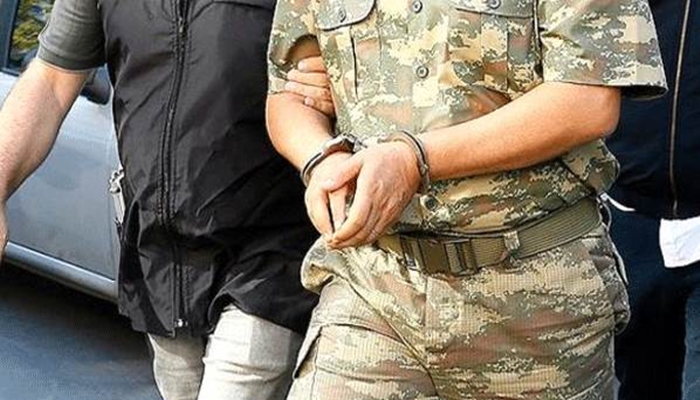Çetin Doğan, a military conscript allegedly attacked by two other soldiers for defending Kurdish-language education in Turkey, faces charges that include dissemination of propaganda for a terrorist organization, the Mezopotamya News Agency (MA) reported on Wednesday.
A 20-year-old currently doing his compulsory military service in Turkey’s Edirne province, Doğan filed a complaint against the two soldiers, identified only by the initials U.C.Y. and Y.K., accusing them of “willful and malicious injury.”
According to MA, Doğan had a broken nose and frontal bone, cracked ribs and bruised legs allegedly as a result of the two soldiers’ attack. He spent three days recovering in a hospital.
Soldiers U.C.Y. and Y.K. gave statements about the incident as part of an investigation launched by the Süloğlu Chief Public Prosecutor’s Office following Doğan’s complaint. After hearing their statements, the same prosecutor’s office also launched an investigation into Doğan over claims of “disseminating the propaganda of a terrorist organization” and “insubordination.”
The Turkish government allowed Kurdish classes and the installation of local place name signs in Kurdish in 2012 as part of a peace process between Ankara and the outlawed Kurdistan Workers’ Party (PKK), a Kurdish group that has waged a separatist insurgency against the Turkish state since 1984.
These rights were revoked after the failure of negotiations between the Turkish government and the PKK, which it designates a terrorist organization. Turkey says Kurdish courses can only run if requested by at least 10 students, which serves as an obstacle to creating the classes, along with a lack of Kurdish teachers.
The government employs up to 40,000 teachers annually with only one or two dedicated to Kurdish education. The classes are also not evaluated at the end of the school year, which discourages some students from joining them.
Throughout most of the 20th century, successive governments have imposed outright bans on or significant suppression of the Kurdish language in Turkey.
Turkey’s Justice and Development Party (AKP) government shut down a number of Kurdish language institutes, dailies, websites and TV channels as part of a crackdown targeting the Kurdish movement following an attempted coup in July 2016.



